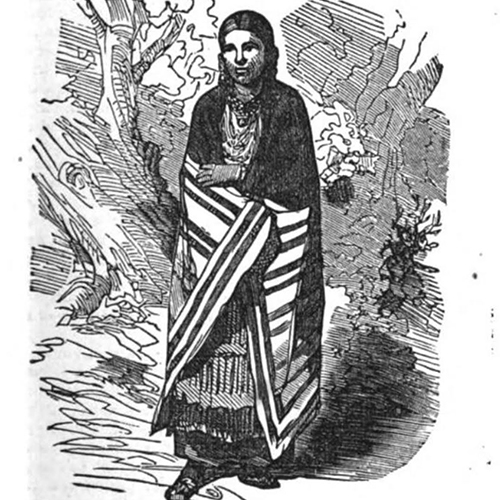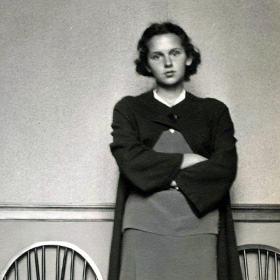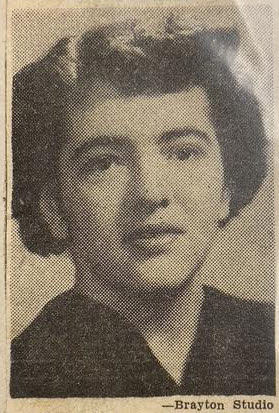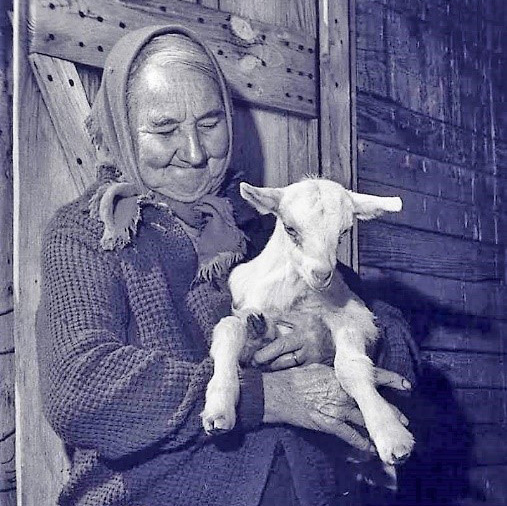New Bedford’s Lydia Grinnell Brown (1892-1945) became the first African American graduate of Simmons College in Boston. Her commitment to the study of languages led to her becoming a translator of French, German, and Spanish for the Pan-African Congress. Lydia represented America as a delegate to the Second Pan African Congress in Paris along with W. E. B. Dubois and others in 1921.
Lydia Grinnell Brown (1892-1945) was the first African American graduate of Simmons College in Boston. Although there is little direct information about her personal experience while attending Simmons, Lydia excelled there. She graduated in 1915 with a bachelor’s degree in Secretarial Studies. While at Simmons, Lydia worked for the Homestead Commission at the State House in Boston. She eventually became a translator during World War I for one of the war emergency boards in Washington, D.C., and after the war she worked as a public high school teacher. Lydia was also a translator of French, German and Spanish for the Pan-African Congress in Paris, London and Brussels. In 1921, Lydia represented America as a delegate to the Second Pan African Congress in Paris along with W. E. B. Dubois and others. The Pan-African Congress discussed issues facing Africa as a result of European colonization and was committed to ending colonial rule and racial discrimination.
Born in Providence, Rhode Island to Lavinia Clark Brown, a skilled seamstress, and Dallas Brown Sr., a butler and caretaker, her family moved to New Bedford early enough for Lydia to attend New Bedford Public Schools. For many years, the family resided at 184 Rockland Street. Lydia’s father was employed as a butler for well-known inventor Frederick Grinnell at 379 County Street. Lydia was named after Lydia Grinnell Knowles, Frederick’s daughter. Lydia’s brother Dallas Brown Jr. graduated from Massachusetts Institute of Technology (MIT) and served as an engineer during World War I.
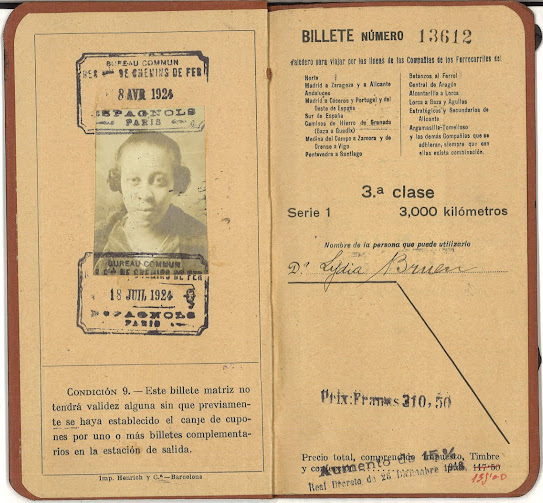
Citation: “[Lydia Grinnell Brown Travel Ticket],” April 1924, Ephemera, New Bedford Whaling Museum Grimshaw-Gudewicz Reading Room and Archives: Brown Family Papers, Collection Mss 110, Box 8
A notebook from the S. A. Howland School Kitchen with 19 lessons shows Lydia’s interest in cooking. Her class schedules from New Bedford High School, from 1906 through her graduation with honors in 1910, list College Preparatory courses and years of French and German. An autograph book from New Bedford High School is filled with signatures and quotations from friends. Two of her notebooks from Simmons College, one for French and the other for stenography, show her continued interest in and dedication to languages. At Simmons College, Lydia’s years of careful notetaking paid off in straight A’s on graded papers and exams. While attending, Lydia lived in Boston and was on the basketball and track teams.
Through letters from her brother Dallas Jr. (also archived with the Brown Family Papers), Lydia was reminded of civil rights and employment issues, but she pressed on to build a life, from her meaningful work, of financial independence.
Lydia died in New York City on June 19, 1945. She is buried at New Bedford’s Rural Cemetery in the Brown family plot.
Ann O’Leary, Emily Bourne Research Fellow
with revisions from Carl J. Cruz, New Bedford Historical Society
Information from
-
Black History@Simmons. Simmons University, https://beatleyweb.simmons.edu/blackhistory/exhibits/show/blackhistory/introduction. Accessed 27 Sept. 2021.
-
New Bedford Whaling Museum Research Library Mss 110. Brown Family Papers. https://www.whalingmuseum.org/collections/highlights/manuscripts/mss-110/#series1
-
Simmons College. “Lydia Brown (1914).” Black History@Simmons, https://beatleyweb.simmons.edu/blackhistory/items/show/45. Accessed 27 Sept. 2021.
![[Lydia Grinnell Brown], 1914, Photograph, Courtesy of Simmons University Archives, https://beatleyweb.simmons.edu/blackhistory/exhibits/show/blackhistory/item/45 Photo of Lydia Grinnell Brown](https://historicwomensouthcoast.org/wp-content/uploads/2017/12/Lydia-Grinnell-Brown-463x463.jpg)

